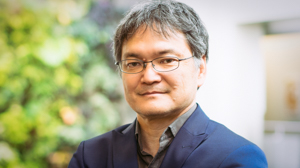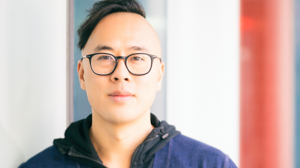How UofGH is exploring Indigenous mental health

During their 10-day visit to several Indigenous communities in northern Ontario as part of a field study, students from the Psychology program at the University of Guelph-Humber saw and heard how traditional healing methods need to be integrated with western approaches when it comes to treating mental health issues in Indigenous populations.
Skylar Rego, a fourth-year Psychology student was among a group of UofGH students who spent 10 days in Moosonee and Moose Factory in Ontario. The group visited a probation and parole office and a healing lodge, heard from residential school survivors, and talked to the Elders. They also toured several facilities that offered resources to the local Indigenous population.
“What moved me the most was how resilient the people were,” Rego said. “Many Indigenous peoples still face the trauma of being put in residential schools and despite the hardship they suffered, some have been working towards making their communities a better place.”
Prior to the field trip, the students spent five days in the classroom studying Indigenous history with a focus on mental health issues.
Dr. Nicole Elliott, the course administrator, said students embraced Indigenous worldviews and became aware of the colonial history of Canada and its impact on Indigenous peoples’ mental health.
“The change from classroom learning to experience learning was highlighted in this course when students learned by listening to Moose Cree community members’ stories and interacted with the people in a genuine and organic way,” Dr. Elliott said. “Each of the students was able to achieve the mandate of the course objectives through their individual experience and through the bonds they built with each other and the community during the course.”
Indigenizing psychology symposium: Many perspectives, one objective
Rego’s learning continued even after she returned from Moosonee and attended the “Indigenizing Psychology Symposium: Death and Dying,” hosted at the Native Canadian Centre of Toronto. There, she and five other UofGH students took the stage and shared some key takeaways from their trip.
“Within the field of psychology, I believe it is extremely important to have an understanding of other cultures when helping and working with others,” Rego said. “Culture not only influences the context of what someone is going through but culture is also very important to consider when helping someone heal. I believe these two events allowed us to gain some knowledge about Indigenous cultures that I can bring with me in my future studies and when working with people.”
Psychology Program Head Dr. David Danto said the symposium gave voice to Indigenous psychologists and researchers in mental health and offered the students a rare opportunity to hear different perspectives and research interests.
The Field Study: More than just 1.0 credit
The field study is an optional course that students must apply to each year and counts as two electives. Upon successful completion, students receive 1.0 credits.
Dr. Danto defines the course as a “listening trip,” one that offers his pupils a chance to step outside their comfort zone and learn from meeting and speaking with those who have been impacted.
“I can never predict exactly how the trip will go because we always meet different people and do different things,” Dr. Danto said. “Nevertheless, students always find a real connection to the people they meet. And they always seem to take away these profound lessons from the course; not just what I intend for them to take away, but also lessons that give them pause for reflection when we come back.”








